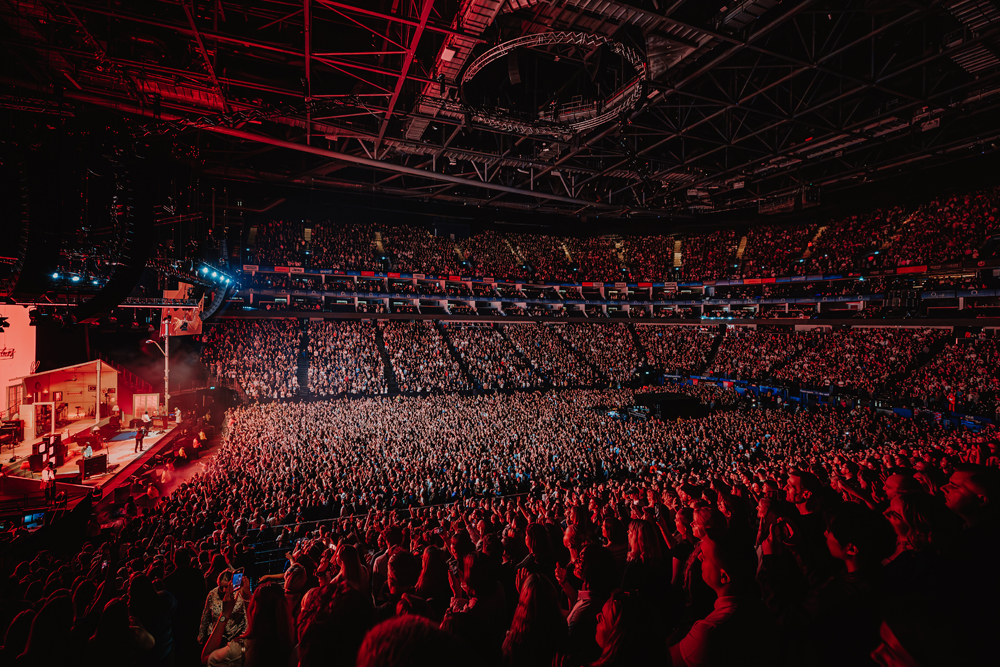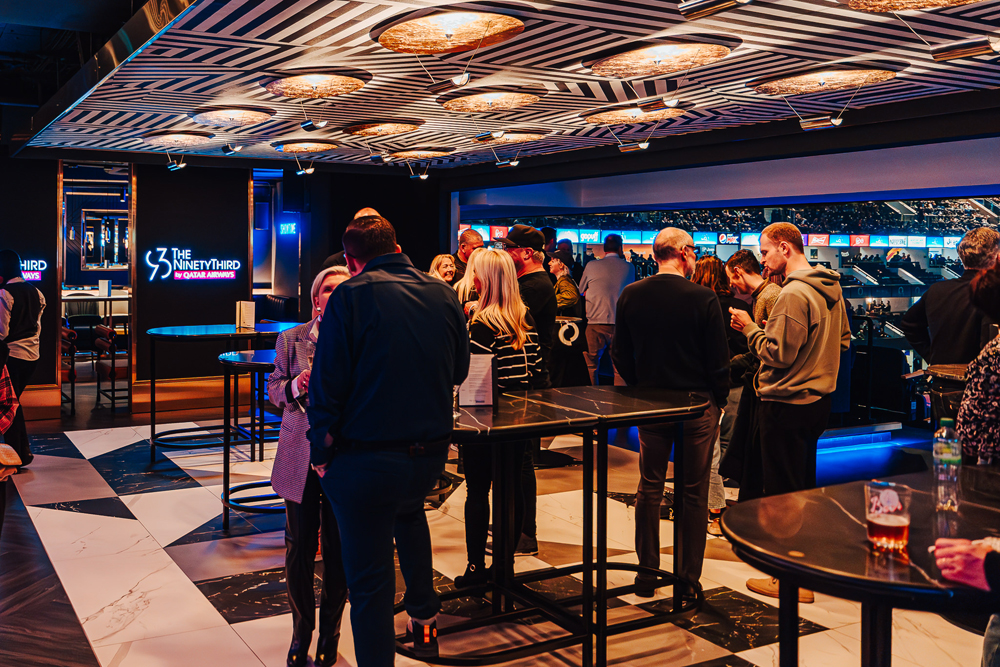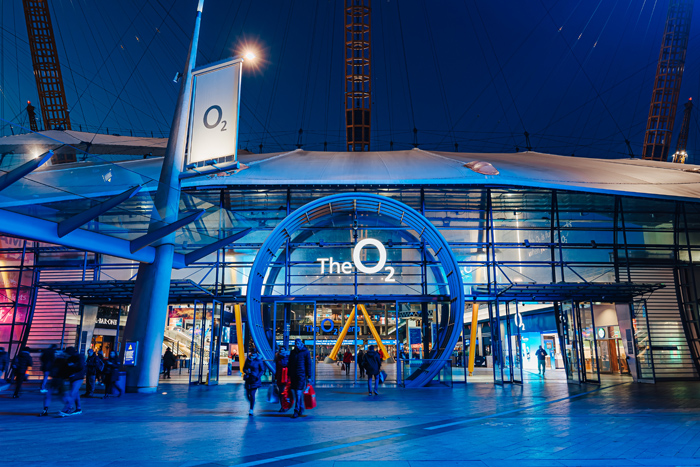London-based multi-purpose arena The O2 has teamed up with two sustainable event delivery partners to pilot the extraction of CO2 from live events. In total, over 500 tonnes of CO2 were filtered out of the air at four concerts.
The O2, one of the world`s most popular live entertainment, leisure and retail venues, announced the results of its carbon-free arena events pilot on 17 April. According to AEG Europe and The O2, this is the world`s first pilot project in this area. The project was carried out in February 2024 at a total of four shows by the British indie rock band "The 1975". The aim of the project is to create a blueprint for a more sustainable carbon sequestration model for live events. In total, over 500 tonnes of CO2 are said to have been filtered out of the air.
As a result, 136.46 tonnes of residual carbon were extracted and removed per show, which represents a total extraction of 545.9 tonnes of CO2 for the four shows. In comparison, this corresponds to the annual electricity consumption of 395 average households. The pilot series was carried out in collaboration between The O2 and carbon reduction experts CUR8 and A Greener Future (AGF), whose expertise lies in the field of sustainable events.

A total of 545.9 tonnes of CO2 were filtered out of the air during the four shows by British indie rock band
Luke Dyson/The O2
Thanks to initial data from the multi-purpose arena and pre-existing insights from The O2`s various sustainability partners, it was possible to predict the approximate carbon emissions of each show in advance and develop a commercial and sustainable event model where each relevant party took responsibility for their own contribution to the event`s carbon footprint. As a further commitment to supporting a more sustainable future for live events, in addition to the cost of every tonne of carbon removed, The O2 and CUR8 each donated 1% to EarthPercent, a climate foundation focused on identifying and funding effective climate change solutions for the live entertainment industry.
A closer look at the resulting carbon footprint shows that 75.7% of the emissions were caused by fans travelling to the stadium. In contrast, for example, only 3.95% of the carbon footprint came from the operation of the arena, which is primarily attributable to electricity consumption and employee mobility. According to AEG Europe, the fact that the arena operation results in a relatively low emission value is also due to the investments made to increase energy efficiency. The installation of LED lighting and screens throughout the arena, which is said to have resulted in energy savings of around 300,000 kWh in 2023 alone, is said to have contributed to this.

To reduce CO2 emissions, the menu in the arenas hospitality areas has also been changed.
Luke Dyson/The O2
Sam Booth, Director of Sustainability at AEG Europe, commented: "With the success of this world-first pilot series of arena events, we have proven that it is possible to put on an arena-sized live show that doesn`t compromise on a great fan experience and still considers the impact on the environment. We hope this serves as a wake-up call to the industry as a whole that carbon reduction is a viable solution that can be used to run live events, but that it must be embraced by all stakeholders in the live ecosystem to be successful - from venues and promoters to the artists themselves. We are determined to continue to innovate and find even more ways to make our world-class events across AEG Europe more sustainable as we strive for a low-carbon future for the live industry."

In the future, further innovative approaches are planned to further reduce The O2`s carbon footprint.
The O2
Pioneering a more sustainable future for live events, The O2 claimed to be the first venue to launch its own Green Rider in 2023 - a document designed to act as a blueprint to make upcoming tours and productions at the venue more sustainable. In addition, The O2 was also the first arena in the UK to receive the Greener Arena certification awarded by the AGF. The Uber Arena in Berlin and the Barclays Arena in Hamburg, both of which are also operated by AEG Europe, are currently working towards similar certification. (Stadiaworld, 17.04.2024)